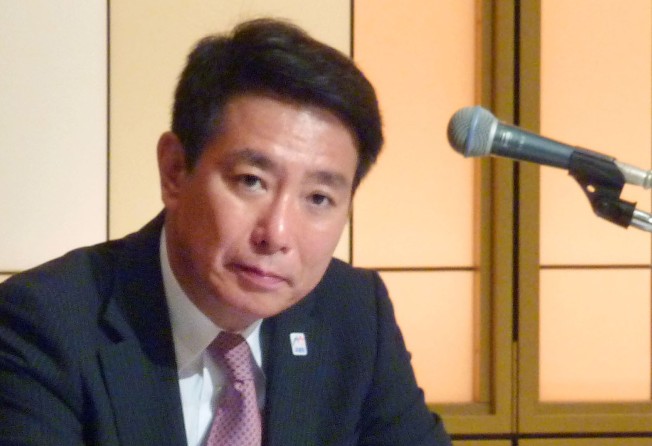Japan’s main opposition party selects former foreign minister Seiji Maehara as its new leader
The party’s presidential election was held after former leader Renho announced her resignation following the party’s defeat in the Tokyo metropolitan assembly election

Japan’s main opposition Democratic Party selected former foreign minister Seiji Maehara as its new leader on Friday amid its struggle to become a viable alternative to Prime Minister Shinzo Abe’s Liberal Democratic Party (LDP).
Maehara, the 55-year-old conservative-leaning former leader of the party’s predecessor, the Democratic Party of Japan (DPJ), beat his sole contender Yukio Edano, 53, who had assumed key posts such as chief Cabinet secretary while the DPJ was in power between 2009 and 2012.
“We must change this dangerous current political situation, in which [the public] can only choose the LDP, or pin their hopes on something whose form is still unknown,” Maehara said.
“I vow together with you all to break out from this difficult situation, not for our own sake but for the public’s sake.”
In the contest, Maehara was backed by conservative fellow lawmakers in the party, while Edano was mainly supported by liberal members. But after the vote, Maehara called for party unity.
The party held a leadership race after Renho announced her resignation as party leader following the party’s defeat in the Tokyo metropolitan assembly election in July.
In the vote tallied at the party’s convention, Maehara gained 502 points out of a total of valid 834, while Edano received 332 points.
The party’s 145 Diet lawmakers and 128 of those approved to run in future national elections, as of August 2, were eligible to cast their ballots on Friday, and a total of 1,543 regional assembly members and around 229,000 party members and supporters nationwide voted by mail beforehand.
The new president’s tenure will run through September 2019.
The Democratic Party has been haunted by a negative image of its predecessor DPJ, which disappointed voters with its government management and repeated infighting.
Renho, who became the first woman to lead the party, resigned nearly a year into the post as the party failed to increase its seats in the metropolitan assembly, despite plunging approval ratings for Abe’s Cabinet. Tokyo Governor Yuriko Koike’s fledgling Tomin First no Kai (Tokyoites First party) was a solid winner.
The leadership change comes as a realignment of the opposition parties is under way in the lead-up to the next House of Representatives election that must be held by late next year. The new leader will be tasked with strengthening the unity of the party as it has recently seen a spate of defectors frustrated with the leadership.
Former Environment Minister Goshi Hosono, who had been viewed as a future leader candidate but left the party last month, is now seeking to form an alliance with independent lawmaker Masaru Wakasa, a Koike ally.
During the leadership race campaign, one of the most divisive issues between Maehara and Edano was the party’s electoral cooperation with other opposition parties, in particular the Japanese Communist Party.
While Edano was in favour of maintaining the existing policy of jointly backing candidates with the JCP, Maehara expressed his intention to review the stance. They also differed over other key issues including the timing of raising the consumption tax rate, nuclear power policy and amending the war-renouncing Constitution.
Maehara is an eight-term lower house member from a constituency in Kyoto, western Japan. He served as DPJ president in 2005 at the age of 43. In 2011, he resigned as foreign minister over his receipt of a donation from a Korean resident of Japan. Japanese law prohibits accepting political donations from foreigners.